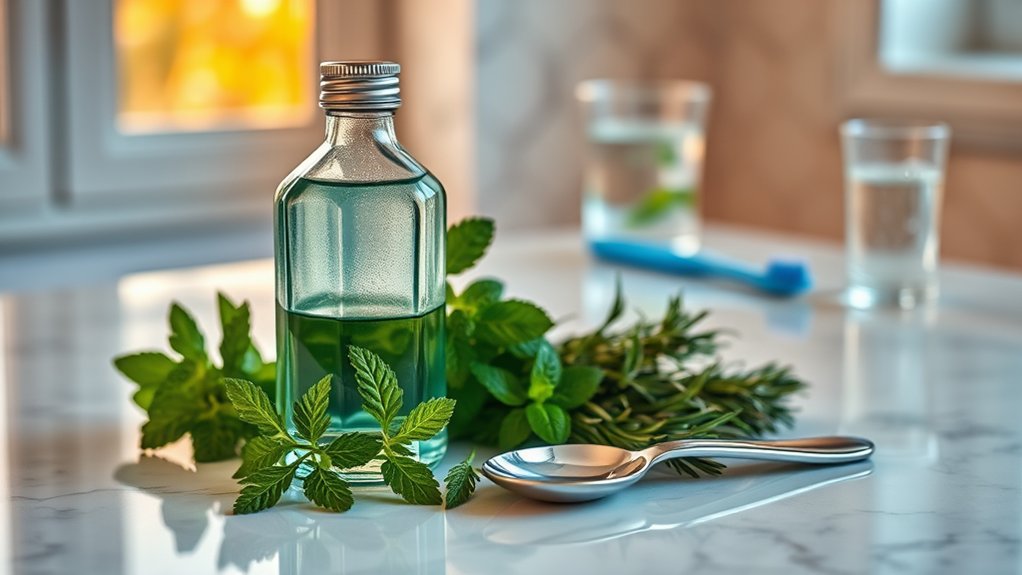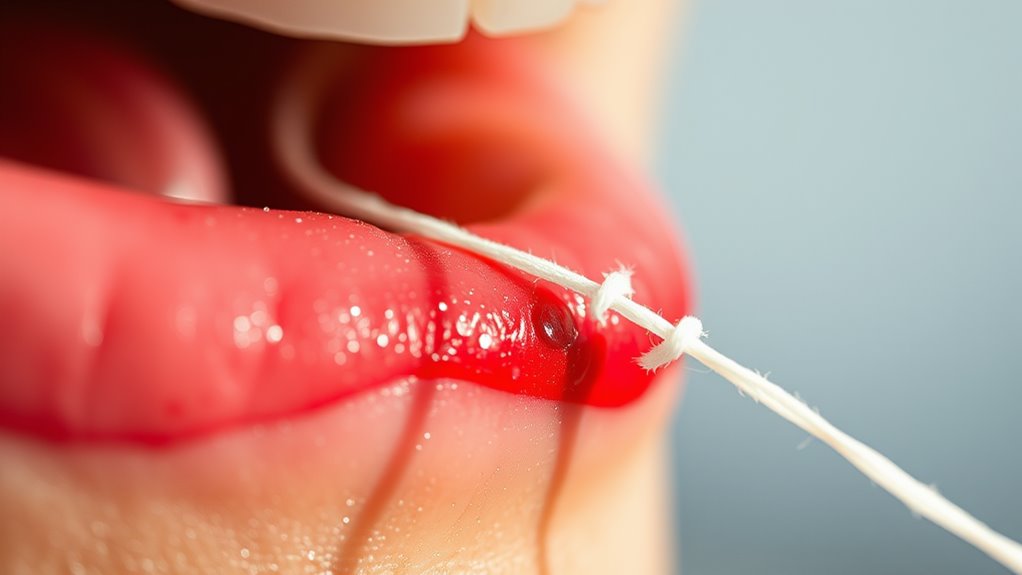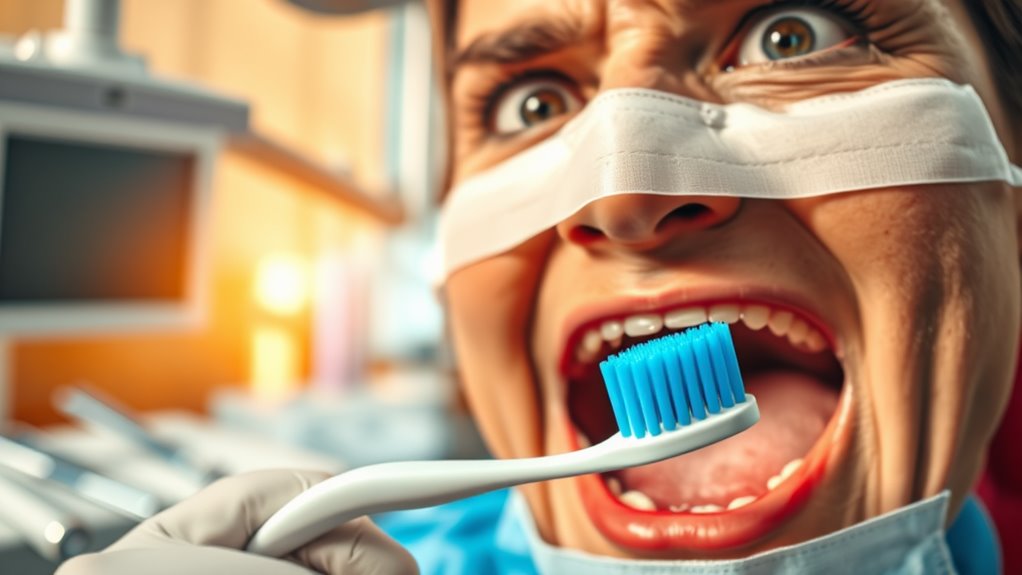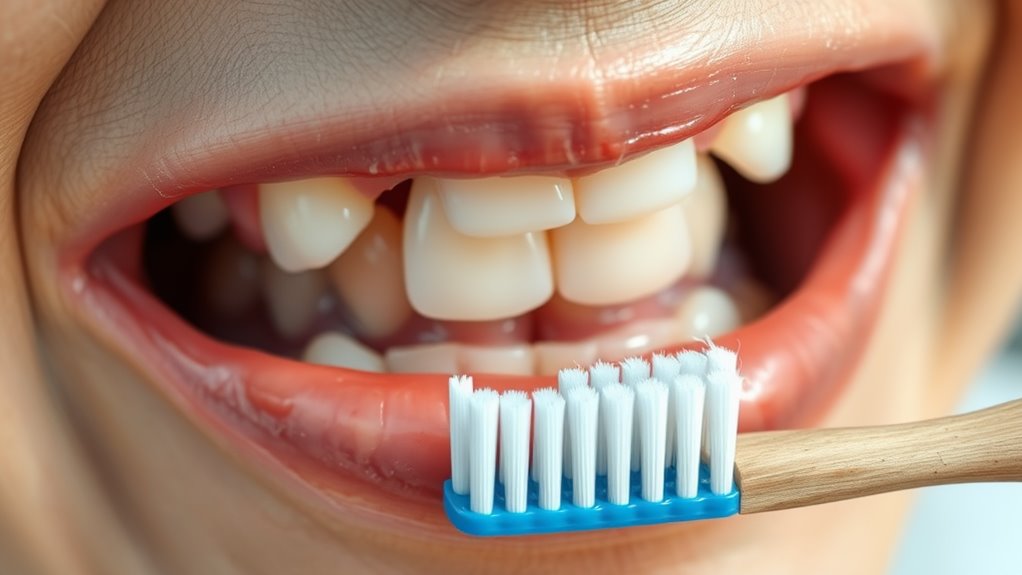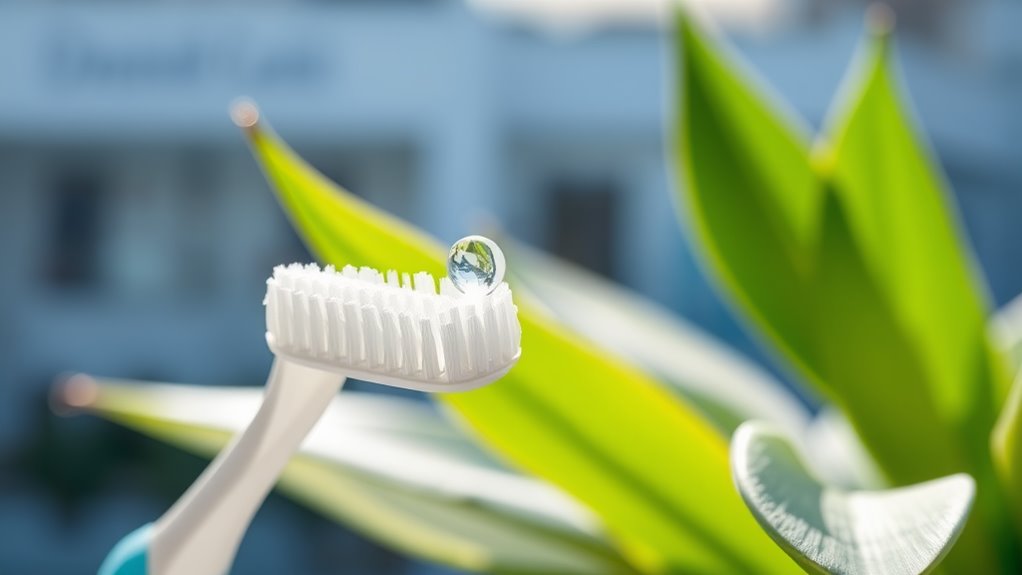Mouthwash Myths- What Actually Works.
You’d think mouthwash is the ultimate solution for perfect oral health, but that’s far from the truth. While it plays a role in your routine, it can’t replace brushing and flossing. Misconceptions abound about its effectiveness and ingredients, leading many to make uninformed choices. What really matters is understanding how to use mouthwash correctly and finding the right type for your needs. Let’s explore the facts and separate myth from reality.
The Purpose of Mouthwash: Beyond Fresh Breath
While you might think of mouthwash primarily as a tool for freshening breath, its purpose extends far beyond that initial impression.
An effective mouthwash plays a crucial role in oral hygiene by reducing plaque buildup, preventing gum disease, and fighting cavities. Many formulations contain antiseptic ingredients that target harmful bacteria in your mouth, enhancing overall dental health.
Additionally, some mouthwashes offer fluoride to strengthen tooth enamel. By incorporating mouthwash into your daily routine, you can maintain a cleaner, healthier mouth and complement your brushing and flossing efforts. Regular use of mouthwash can also reduce plaque formation and prevent tooth decay, further elevating your oral care regimen.
Don’t underestimate the broader benefits of this often-overlooked oral care product.
Common Myths About Mouthwash Effectiveness
When it comes to mouthwash effectiveness, there are several myths that can be misleading.
You might think that alcohol-based mouthwashes are always superior or that they contribute to whiter teeth, but that’s not necessarily the case.
Additionally, many don’t realize that fresh breath from mouthwash doesn’t last as long as they might believe. Overuse of mouthwash can disrupt the oral microbiome balance, leading to potential oral health issues.
Alcohol vs. Alcohol-Free
Have you ever wondered whether alcohol-free mouthwash is as effective as its alcoholic counterpart? Many believe that alcohol is necessary for effective mouthwash, but studies show that alcohol-free options can also reduce plaque and gingivitis.
Alcohol can cause dryness and irritation, which mightn’t be suitable for everyone. Alcohol-free mouthwashes often contain alternative antibacterial agents that effectively kill harmful bacteria. Additionally, they can be gentler on your mouth, making them a better choice for sensitive individuals.
Ultimately, choosing between alcohol and alcohol-free mouthwash depends on your specific needs and preferences, as both can provide oral health benefits when used correctly.
Whiter Teeth Myth
Many people mistakenly believe that using mouthwash will lead to noticeably whiter teeth.
While mouthwash can help remove some surface stains and improve oral hygiene, it doesn’t possess the bleaching agents necessary for significant whitening.
Most formulations are designed for freshening breath and killing bacteria, not for altering tooth color.
If you’re after a brighter smile, it’s better to explore professional whitening treatments or at-home kits specifically designed for that purpose.
Relying solely on mouthwash won’t yield the results you desire.
Understanding this myth can prevent disappointment and guide you towards effective tooth whitening solutions.
Fresh Breath Duration
While mouthwash can enhance your oral hygiene routine, it’s important to recognize that not all formulations provide long-lasting fresh breath. Many people believe mouthwash guarantees hours of freshness, but this isn’t always true.
Factors affecting breath duration include:
- The type of mouthwash used (alcohol-free vs. alcohol-based)
- Ingredients that mask odors instead of eliminating them
- Your diet and its impact on breath
- Frequency of use and proper oral care practices
To achieve lasting freshness, consider complementing mouthwash with proper brushing, flossing, and regular dental check-ups.
Educating yourself about effective products can lead to better oral health choices.
Alcohol vs. Non-Alcohol Mouthwash: What’s the Difference?
What’s the real difference between alcohol and non-alcohol mouthwash? Alcohol-based mouthwashes often provide a stronger, immediate antiseptic effect, helping to kill bacteria that cause bad breath. However, they can cause dryness or irritation for some users. Non-alcohol mouthwashes, on the other hand, deliver a gentler approach, often moisturizing the mouth while still combating bacteria effectively. Choosing the right type depends on your personal needs and preferences. Additionally, over-reliance on mothwash’s antimicrobial properties can disrupt the bacteria balance in your mouth.
| Alcohol Mouthwash | Non-Alcohol Mouthwash | |
|---|---|---|
| Taste | Strong, sometimes burning | Milder, often flavored |
| Effects | Immediate antiseptic | Gentle, moisturizing |
| Irritation | Can dry mouth | Less likely to irritate |
| Use | Quick breath freshening | Long-term oral health focus |
The Role of Antimicrobial Agents in Mouthwash
Understanding the role of antimicrobial agents in mouthwash is crucial for maintaining oral health. These agents help reduce harmful bacteria in your mouth, which can prevent issues like gum disease and cavities.
When choosing a mouthwash, consider the following benefits of antimicrobial ingredients:
- Kill bacteria responsible for plaque
- Reduce bad breath by targeting odor-causing microbes
- Assist in gum health by minimizing inflammation
- Help prevent tooth decay by fighting harmful pathogens
Incorporating a mouthwash with effective antimicrobial agents into your daily routine can significantly enhance your oral hygiene and contribute to lasting dental health. Additionally, it’s important to remember to clean your tongue, as doing so helps further eliminate bacteria that might linger after brushing.
Natural Mouthwash Alternatives: Do They Work?
Many people are exploring natural mouthwash alternatives as a way to maintain oral health without synthetic ingredients. Options like saltwater, baking soda, and herbal infusions offer varying benefits. Saltwater can reduce inflammation and promote healing, while baking soda neutralizes acids and freshens breath. Herbal mouthwashes, such as those containing tea tree oil or echinacea, may possess antibacterial properties. However, it’s important to note that while these alternatives can help, they mightn’t provide the same comprehensive protection as traditional mouthwashes. Disrupting the oral microbiome can also occur with over-reliance on synthetic products, so always consult with your dentist to ensure these options fit into your overall oral care routine effectively.
Best Practices for Using Mouthwash Safely and Effectively
When using mouthwash, it’s essential to choose alcohol-free options to minimize irritation and dryness.
Additionally, timing your rinse can enhance its effectiveness; using it after brushing can help in fighting bacteria.
Choose Alcohol-Free Options
Choosing alcohol-free mouthwash can significantly enhance your oral care routine, especially if you’re prone to dry mouth or have sensitive tissue. Alcohol-based mouthwashes can cause irritation and discomfort, but alcohol-free options provide benefits without those downsides.
Consider these points when selecting your mouthwash:
-
Gentler on gums: Safer for sensitive tissues and helps prevent irritation.
-
Hydrating: Supports moisture levels, particularly beneficial for dry mouth.
-
Effective ingredients: Many contain fluoride or natural antibacterial agents.
-
Pleasant taste: Often milder flavors make regular use more enjoyable.
Opt for alcohol-free mouthwash and reap these rewards!
Timing Is Key
Using mouthwash at the right time can significantly enhance its effectiveness in your oral care routine.
Ideally, you should use mouthwash after brushing and flossing. This way, it can reach areas that brushing might miss and provide an extra layer of protection.
Avoid eating or drinking for at least 30 minutes after rinsing to let the active ingredients work effectively.
If you’re using a fluoride mouthwash, utilize it at night for added cavity protection while you sleep.
